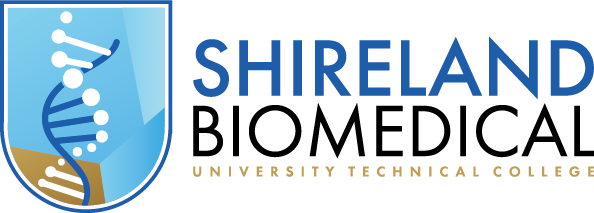CURRICULUM
We teach a three-year Key Stage 3 curriculum that builds upon the science knowledge and skills that students have gained during their earlier years.
This ensures that the KS3 National Curriculum programme of study for Science is covered broadly and in depth. Students have the time and capacity to gain new knowledge and develop skills of scientific enquiry. Every student will have the opportunity to become a confident practical scientist, capable of proposing and testing hypothesis in the laboratory.
The three-year curriculum provides the necessary time to enrich the learning of students with extended practical opportunities. The scientific competencies that underpin all units of work provide students with a mechanism to link the science knowledge gained in lessons to real life ideas applications. We teach concepts using relevant examples and case studies that students can relate to and care about. The interleaved model of learning allows students to return to ideas and skills that have been covered previously to achieve competence and mastery.
We have a duty to deliver an outstanding Science education to the young people in our care. Through the delivery of the Science curriculum, we provide them with a sense of curiosity, awe and wonder. We can inspire and equip the scientific innovators of the future with the skills they need to compete on a global stage. This generation of young people will train for jobs and industries that may not exist yet. They may have to retrain and change careers several times in their lifetimes. A thorough foundation of Science knowledge, skills and a passion for discovery is essential for their success.
Our Key Stage 3 Science Curriculum aims for students to:
- Use scientific ideas and models to represent and explain abstract concepts.
- Explore how and why scientific theories and ideas have changed over time
- Identify the risks and benefits associated with the development of new ideas or technology.
- Devise scientific enquiry questions that can be explored by investigation
- Identify hazards and assess risks in a range of situations.
- Follow and devise comprehensive methods to collect valid data within scientific enquiries.
- Present data accurately and in a manner appropriate for the target audience.
- Identify and analyse patterns within data in order to determine the nature of relationships.
- Make and explain conclusions using scientific knowledge and understanding.
- Make connections between concepts learned in Science, other areas of the curriculum and real life
- Evaluate the reliability of scientific claims and to be able to question and challenge opinions.
- Evaluate the accuracy, precision and reliability of data and procedures, making suggestions for improvements.
- Communicate scientific ideas effectively with high standards of literacy and numeracy
- Appreciate the important of primary and secondary evidence, including peer review
- Apply mathematical skills to solve problems
- Use scientific vocabulary and SI units consistently and correctly.
- Apply a range of simple statistical techniques to support data collection.
Year 7
Science in Year 7 is covered in 2 x 1 hour lessons per week in our state of the art laboratories. The key ideas are covered in the following topics.
- Working Scientifically
- Matter
- Forces
- Organisms
- Variation
- Light
Year 8
Science in Year 8 builds upon the key ideas and skills learned in Year 7. Science lessons continue to be delivered in 2 x 1 hour sessions per week in our state of the art laboratories. The key ideas are covered in the following topics.
- Working Scientifically
- Energy
- Particles and temperature
- Life Processes
- Acids and Alkalis
- Reactions
- Waves
Year 9
In Year 9, Science is allocated 4 x 1 hour lessons per week in a continuation of the Key Stage 3 curriculum as students approach the transition to Key Stage 4. Year 9 is a crucial year where students make their choices of the subjects that they will study at Key Stage 4. All students will progress to study at least Combined Science in Year 10 and 11 though we hope to inspire as many students as possible to study Separate Sciences at GCSE level.
In Year 9, the fundamental ideas are extended upon further in the following topics:
- Working Scientifically
- Electric Circuits
- Matter
- Living Organisms
- Energy
- The Periodic Table
- Forces and Pressure
- More Chemical Reactions
- Bioenergetics


